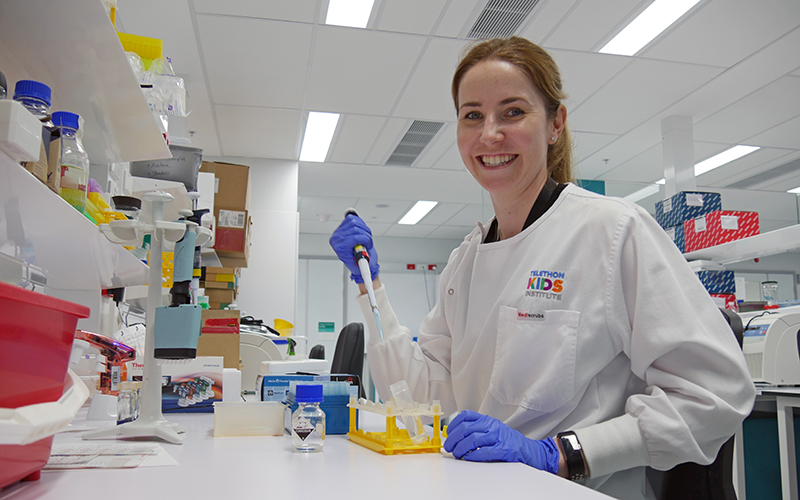Search
Showing results for "Au"
Research
Children's CancersCancers in children are very different from cancers in adults - in most cases they appear to strike simply at random. They also develop differently and can spread more rapidly and aggressively. And because cancers in children are not obviously linked to their lifestyles, much work is needed to pinpoint their cause.
Research
Standardization of Epidemiological Surveillance of Group A Streptococcal PharyngitisPharyngitis, more commonly known as sore throat, is caused by viral and/or bacterial infections. Group A Streptococcus (Strep A) is the most common bacterial cause of pharyngitis. Strep A pharyngitis is an acute, self-limiting disease but if undertreated can lead to suppurative complications, nonsuppurative poststreptococcal immune-mediated diseases, and toxigenic presentations.

News & Events
Support for kids’ mental health and new cancer therapies boosted by WA Child Research FundThe Kids Research Institute Australia researchers have been awarded 12 grants in the latest round of funding from the WA Child Health Research Fund (formerly the Telethon-Perth Children’s Hospital Research Fund).

News & Events
Researchers to focus on MS inflammation puzzleThe Kids Research Institute Australia researchers will seek to better understand the relationship between antibodies and inflammation in people with multiple sclerosis (MS), thanks to a generous grant from MS Research Australia.
Research
WA Food AtlasThe WA Food Atlas is an interactive tool to assess the food environment across local government areas and how it changes over time.
Research
Improving delivery of secondary prophylaxis for rheumatic heart diseaseContinued progress in controlling RHD requires an understanding of how to improve delivery of regular injections of penicillin - secondary prophylaxis (SP).
Research
Understanding how viral infection in early life impacts on lung function in adulthoodAlexander David Deborah Larcombe Martino Strickland BScEnv (Hons) PhD BSc PhD PhD Honorary Research Fellow Head, Chronic Diseases Research Head,
Research
Predicting long term lung health outcomes in young adults born very preterm (WALHIP 19 year old follow-up)This study will conduct a detailed lung health assessment in a follow-up of a group of preterm individuals at 19 years of age.
Research
Occurrence of psychosis and bipolar disorder in adults with autism: A systematic review and meta-analysisEvidence suggests that individuals with autism spectrum disorder have increased rates of co-occurring psychosis and/or bipolar disorder. Considering the peak age of onset for psychosis and bipolar disorder occurs in adulthood, we investigated the co-occurrence of these disorders in adults with autism.
Research
Defining the molecular features of radiation-induced glioma: A systematic review and meta-analysisCranial radiation therapy is essential in treating many pediatric cancers, especially brain tumors; however, its use comes with the risk of developing second malignancies. Cranial radiation-induced gliomas (RIGs) are aggressive high-grade tumors with a dismal prognosis, for which no standard therapy exists. A definitive molecular signature for RIGs has not yet been established. We sought to address this gap by performing a systematic review and meta-analysis of the molecular features of cranial RIGs.
